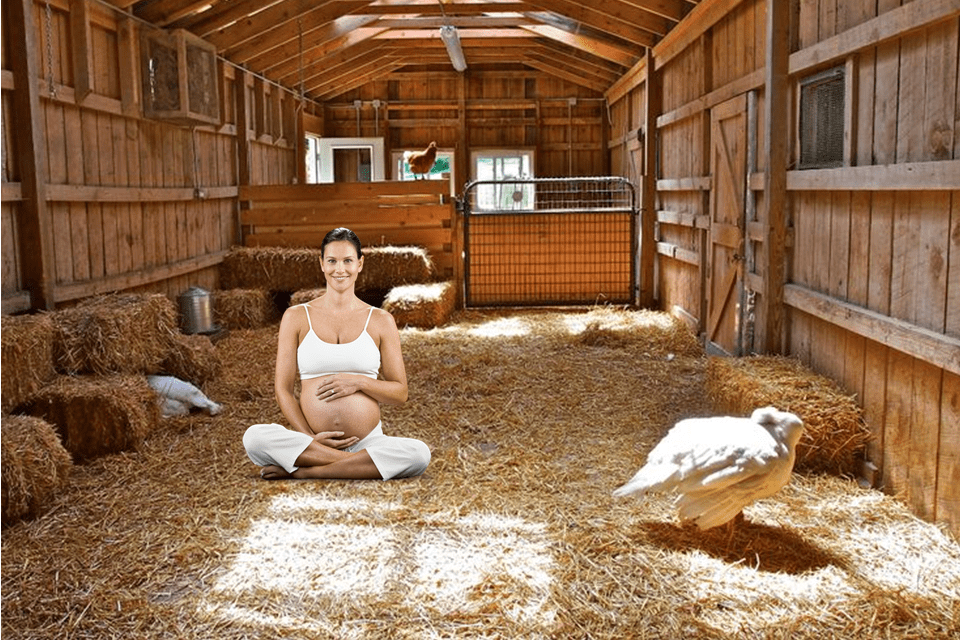BROOKLYN, IA – A new birthing option for expectant mothers is currently taking the nation by storm. Barn birthing will soon supplant the water birth as the go-to option for women wanting a more natural birthing experience.
Barn birthing centers have been popping up all over the country to meet the growing demand. 28-year-old Cadence Loverly is excited to give the barn birth a try. “I didn’t want to have my baby in a hospital,” the expectant mother announced. “That’s where germs live. I love the idea of having my baby in a barn. Jesus was born in a barn. What’s good enough for Jesus is good enough for me!”
Loverly spent months finding the ideal barn for her labor. She ultimately settled on a big red barn belonging to 82-year-old farmer, Jed Pickens. Loverly reportedly fell in love with the barn’s rustic look, gorgeous natural light, and the cool evening breeze wafting through the antique windows. She has also been delighted by the gracious hospitality of Mr. Pickens.

“I cleared out a space in the back next to the goats,” Pickens said as he shoveled fresh manure out of a stall belonging to a cow named Delilah. “I don’t understand it, but for $800 bucks I’ll even lay out some fresh hay for the new kiddo.”
Some innovative farmers are providing luxury barn services for an extra fee. This can range from an oil lantern to use at night to a scratchy wool blanket for warmth. One barn birthing center in Iowa offers a birthing saddle to help progress labor.
The American College of Obstetrics and Gynecology (ACOG) has expressed concern for the barn birthing practice, citing imminent dangers such as rusty nails, communicable diseases, and the possibility that a horse may walk in without wearing the appropriate delivery room attire. “No bouffant, no mask, nothing!” announced an exasperated spokesperson for ACOG.
Despite the controversy, Loverly and other forward thinking women like her are excited spend their first moments as a mother in the natural, warm embrace of a giant barn. “I thought about doing a traditional water birth,” said Loverly. “But then I realized, most barns have a water trough I could use, just in case.”







